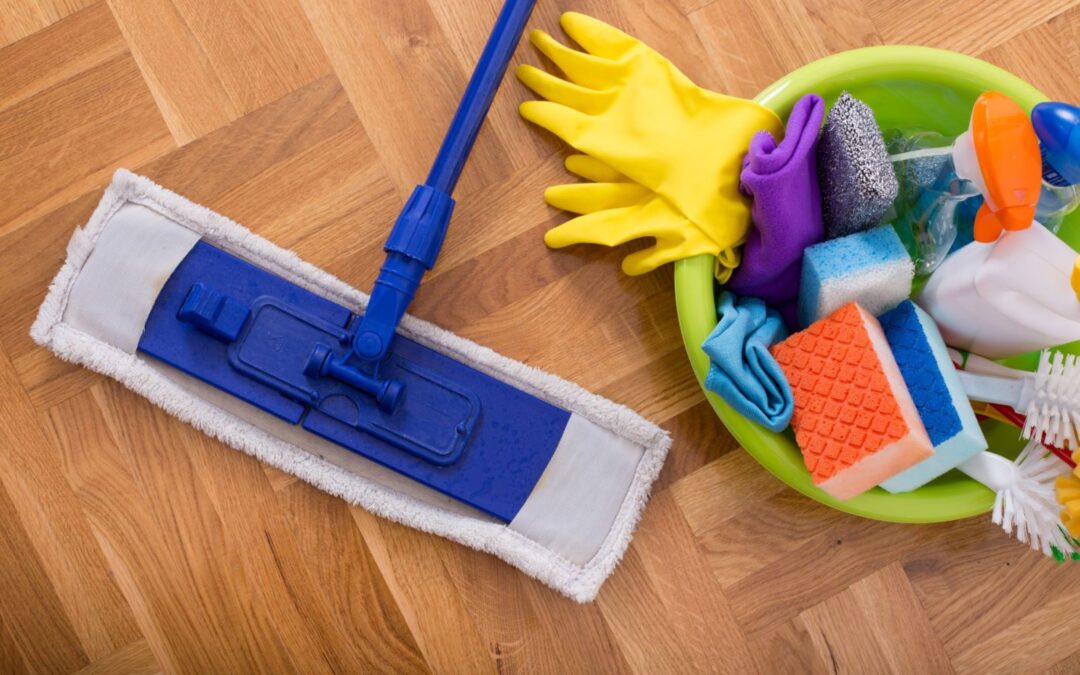Floors are a gift that keeps on giving when the proper floor care is performed. Quality flooring comes in everything from marble to carpet, and provides homeowners with function and style year after year. Designed to last decades, floor care is essential to achieve this longevity.
Different materials require different methods of care to reach their potential longevity. Commercial Floor Services wants to ensure your floors last for their maximum lifetime, so here are some important floor care tips.
1: All Floors
Regardless of the material, some floor care applies to all flooring. Weekly sweeping and vacuuming will prevent dirt and other abrasives from wearing away protective finishes. This simple maintenance, like a vehicle’s oil change, will considerably prolong the life of your floor.
One of the most crucial floor care considerations is cleaning liquid spills immediately. Although some materials are more susceptible to moisture damage, such as hardwood and vinyl, prolonged liquid exposure can damage any flooring.
Other floor care considerations are to have a “no shoes” rule indoors and to use mats and rugs in high-traffic areas. Rubber backing on mats or rugs can discolor some surfaces, so use it with discretion. Another preventative floor care measure is to use furniture pads underneath couches, chairs, and other items that can dent or scratch surfaces.
2: Carpet
Be sure your regular maintenance includes vacuuming with a machine suitable for your floor. Some carpets require a different style of vacuum that will not damage their fibers. When you encounter loose threads or snags, cut them off rather than pulling, which could damage adjacent fibers.
It will be essential to clean the entire carpet with a specialty machine. This should occur every 12-18 months and can be done by yourself, but a professional is always recommended. If you use a stain remover, follow the instructions and spot-test an inconspicuous area before using.
3: Solid & Engineered Wood
Since solid and engineered wood has the same natural surface, like oak or bamboo, their upkeep needs will be similar. Finishes like polyurethane protect the wood, and it is essential to keep moisture exposure to a minimum, so avoid using an excessively wet mop. Opt instead for a dry mop to gather dust, or use a wood floor attachment for your vacuum.
If more cleaning is needed, use warm water and a tablespoon of dish soap for each gallon of water. Clean small areas at a time, mop again with fresh rinse water and then dry with a soft cloth.
Reapplying the finish product is recommended every 3-5 five years. A full refinishing, including sanding the floor, should occur every decade or two, depending on how well the floor has been maintained.
4: Tile
With proper upkeep, tile is strong and long-lasting. Clean by mopping with a small amount of pH-neutral detergent and warm water, then mop with clean rinse water afterward, as the leftover detergent can leave residue and may become slippery when wet. If you choose to use cleaning products that are not tile-specific, do so sparingly. Bleach, vinegar, and ammonia can discolor tiles and grout and contribute to their degradation.
Caring for the cementitious grout between the tiles will have the same requirements concerning cleaning and sealing, regardless of the tile. There are multiple products that clean and seal grout without damaging the tile. Just be sure to read the instructions thoroughly before using them.
About once a year, it is also important to reapply the waterproofing sealer to your grout and possibly tile. These products will state what tiles they are safe to use on, so follow the manufacturer’s recommendations for the best result.
5: Vinyl
One of vinyl’s qualities is its easy upkeep. Vinyl can be mopped with warm, soapy water and then with clean water. Ensure that any excess moisture is wiped up afterward.
Avoid acidic cleaners or abrasive products and mops. In addition, avoid vacuums with “beater bars” and wax or solvent-based polishes.
6: Epoxy
Epoxy is another flooring material that, once installed, requires minimal maintenance. Use a push broom for the best results for large spaces such as garages or epoxy with anti-slip aggregates.
When it’s time for a deeper clean, you can mop with diluted ammonia. Simply mix ½ cup of ammonia with your water and mop as usual.
When you notice that your epoxy coating is wearing thin, bubbling, or peeling away from the floor, consult a professional about whether it’s time to recoat the floor with fresh epoxy.
Commercial Floor Services is here to answer any questions you have about floor care and flooring in general, whether it’s regarding upkeep, materials, or installation. We encourage you to contact us today!



